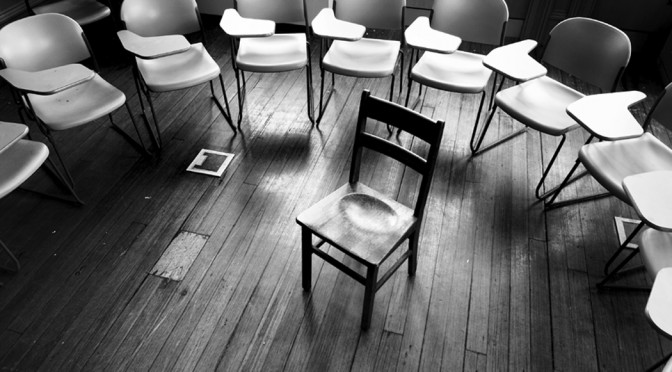Dear Students,
Ten years ago I stumbled into a classroom with a textbook in one hand and a hastily written syllabus in the other. I had no idea what I was doing or the adventure I was about to embark upon. Most surprisingly I could not have foreseen how you would change me.
It is now time for me to end that adventure. I am walking away from the podium, turning off the lights, picking up my books and moving on. It is bitter sweet to say the least. However, I cannot leave without taking a moment to acknowledge the many lessons you taught me.
1.) To be strong in the face of adversity
I met so many students who were facing challenges and obstacles that I could not even begin to imagine. Things that neither child nor adult should face.
The woman who raised two sets of triplets while her husband was deployed with the Air Force, and then discovered she had a brain tumor. After surgery she could no longer work as a math teacher. She decided to return to school and retrain her brain in a different field.
The sixteen year old girl whose mother was diagnosed with stage 4 Ovarian cancer and had to drive her to chemo everyday and then come to class. The same girl who developed Swine Flu that semester and refused my offer of an incomplete and instead soldiered on and got a B+ in my class.
All the soldiers who wandered into my classroom after being deployed in a war zone. Many of whom were lost, scared and unsure of how to relate in a place that didn’t warrant lightening fast reflexes.
The young lady whose parents had moved away when she was 14 and left her in charge of her two younger siblings. They visited periodically, provided financial support but emotionally she was the parent.
The list goes on and on but each of these very real students, with very real circumstances showed me what real bravery and courage looks like.
2.) Don’t listen to what people say you can’t do
I met so many, many young single mothers. I give each of you a standing ovation. I looked into your eyes and saw fear and doubt, but I also saw bravery, determination, courage and the tightly set jaw of a person who was going to accomplish their goals at all costs. A person who ignored the “couldn’t” and “shouldn’t” and “can’t”s that were constantly being thrown your way. I watched you waddle into classrooms, run out of them throwing up, and then crawl back in after birth. You amaze me and inspire me to never given up.
3.) Believe in the future
To all the cock-eyed optimists – which is all of you. You see careers in front of you filled with success and money and prestige. The world is an oyster and you are thrilled to be a part of it. You are excited and eager to start work, to contribute, to achieve. You reminded me that there is joy to be found in the future if you just keep looking for it. That the future should always be something welcomed with excitement.
4.) Recognize your accomplishments
I have never considered myself neither smart nor wise. Yet you generously proffered that compliment on me again and again. Until I realized that my years of living – just by having experienced them – gave me wisdom. I did nothing special to achieve this wisdom, I just lived, but in living I accomplished and that is not something to be dismissed. So thank you for showing me that age is to be celebrated and not denigrated.
I will miss you – my students – very, very much. I wish I could hug each of you, and give you a chocolate chip cookie.
YOU are amazing and I have been blessed that for one fleeting moment I got to be a part of your life journey.
Thank You,
Professor Beth Morley










